 April will see the release of James Enge's swords & sorcery novel, Blood of Ambrose, an epic work featuring Morlock Ambrosius, wandering swordsman and master of all magical makers. The book is a stand-alone adventure, but Morlock returns in the (already-delivered) follow-up, This Crooked Way, and we've just signed for a third Morlock novel, the wonderfully-titled The Wolf Age. But Morlock Ambrosius already has a significant following, as Enge has been chronicling his adventures in short stories for some time prior to his novel debut. The tale below is but one example."A Book of Silences," first appeared in the pages of Black Gate magazine. We are pleased to reprint it in its entirety here. What's more, we will shortly be presenting "Fire and Sleet," which follows directly on the events of "A Book of Silences" and is an original novelette that will debut here for the first time anywhere. So, read and enjoy!
April will see the release of James Enge's swords & sorcery novel, Blood of Ambrose, an epic work featuring Morlock Ambrosius, wandering swordsman and master of all magical makers. The book is a stand-alone adventure, but Morlock returns in the (already-delivered) follow-up, This Crooked Way, and we've just signed for a third Morlock novel, the wonderfully-titled The Wolf Age. But Morlock Ambrosius already has a significant following, as Enge has been chronicling his adventures in short stories for some time prior to his novel debut. The tale below is but one example."A Book of Silences," first appeared in the pages of Black Gate magazine. We are pleased to reprint it in its entirety here. What's more, we will shortly be presenting "Fire and Sleet," which follows directly on the events of "A Book of Silences" and is an original novelette that will debut here for the first time anywhere. So, read and enjoy!James Enge
That night Morlock Ambrosius dreamed of silence as a pool lapping at his feet, in which he watched the world slowly dissolving in a golden glare. He woke with the sun in his face and an uneasy feeling in his mind.
He decided, as he sponged himself off at the basin of his rented room, that his dream meant that he had spent too much time in the sleepy little forest town of Aithonford, and that he needed a city full of noise and smoke and voices. Fyrkirach, not too many days ride to the south, might do. After dressing, he stowed his belongings in his pack, slung it over his crooked shoulders and went downstairs.
“Master Bunden,” he said, on meeting his landlord, whose cheerful face fell when he saw what Morlock was carrying.
“Ach,” the little man said disconsolately, “I guess you’ll be leaving us, Master Morlock. This is sudden.”
Morlock nodded. “I must go. But I may return. Maybe you’ll hold my room for six months or so? I’ll pay you.”
Bunden nodded, but not cheerfully. “Sure, sure-- we’ve always got an empty room, as you know, and the gold’ll be grateful. But gold doesn’t talk to you.”
Neither did Morlock, much, so he hefted his saddle from a hook by the door and went out back to fetch his horse from the stable. He was struck, as he went, by the thought that Bunden was fond of him. It meant little, perhaps: Bunden had a capacity for being fond of people. When he found that his brother Handen was sleeping with his wife, Rella, he simply divorced her, stood up at her wedding to his brother, and gave both of them jobs at his inn. “I thought about killing them,” the little man confided to Morlock (not without confidence: he was also one of the town blacksmiths), “but... I’d miss seeing them around.” So it probably meant little that he would miss Morlock, after a few nights of trading stories among several months of mostly silent coexistence.
These thoughts were driven out of Morlock’s mind when he rounded the smithy attached to the inn, and found that the stable had vanished. His horse, Velox was there, disdainfully cropping some of the weed-thick grass of the empty field, but there was no stable, no fodder troughs, nothing. Morlock crouched down to examine the ground, rose again thoughtfully a few minutes later. In his opinion, this ground had never been levelled for building. Yet, last night, there had been a stable here, the largest in town.
Velox, his horse (a black, somewhat middle-aged warhorse with sarcastic gray eyes), trotted up and snorted at him. Morlock grunted and patted him on the neck. Then he led him around the front of the house and went in. “Master Bunden,” he said, stepping into the dimness of the common room. “Your stable is missing.”
“Eh?” said an irritable voice. “What’s that?”
“Your pardon, Handen,” Morlock said. “I didn’t know you from your brother in the dark. I suppose he is in he smithy by now.”
“I don’t have any brother and this inn doesn’t have any stable-- or a smithy,” Handen replied irritably. “Are you sure you’re at the right place? Maybe you got drunk last night and came back to the wrong inn.”
Morlock, beginning to find the conversation tiresome, stepped outside to confirm Handen’s remark about the smithy. It was, in fact, gone. A pine tree at least forty years old was towering where the smithy had been a few moments before. He was unsurprised to find Handen missing on his return. He ran into Rella, just outside the common room and began, without much hope,
“Ma’am, I was just speaking to your husband--”
Rella laughed the infectious laugh that had so appealed to Bunden and his brother, while they still existed. “Bless me, Master Morlock, someone has been teasing you. I’ve no husband.” Morlock watched with some interest as one of her eyes disappeared, congealing like a small puddle in the hot sun. “Who’d marry a one-eyed woman like me?” she continued without pause. Her other eye disappeared. “Nevertheless, this blind old woman will be sorry to see you go, if you catch my meaning.”
“Farewell, then, Ma’am,” said Morlock, more swiftly than was strictly courteous. He wanted to say goodbye before Rella’s ears disappeared, which they had begun to do before he turned away.
Once outside he shifted the pack from his back to Velox’s, saddled the horse and rode away: away from a shadow-etched plot of green, a patch of uncleared forest in the heart of the little town.
Bunden’s place was not the only one affected by whatever was happening to Aithonford: all through the town there were vacant lots that had not been vacant the day before. In some places the vacancies themselves had disappeared, pulling two buildings that were not adjacent next to each other, giving the town’s main street a strangely wrinkled, puckered look.
Morlock reined Velox in by the other inn (now the only inn) in Aithonford. When the postboy came up to take his horse, Morlock did not dismount, but said, “Fellow, listen. Isn’t there a sorcerer who lives nearby? A sorcerer in the woods?”
The postboy hesitated. “I’m not supposed to say...” he began. He never finished.
Morlock shrugged his wry shoulders and rode away from the empty place where the post-boy had been. At least he knew now that his suspicions were correct: there was (or had been at one time) a sorcerer living nearby. It wasn’t surprising that no one had mentioned it to him before: he was not so intimate with anyone in town that they would let him into their deeper confidence. Sorcerers, especially solitary adepts, were bad neighbors, as a rule-- nothing to brag about.
He rode on to the end of the main street, where some boys were taking turns kicking a leather ball into a man-shaped wooden target which bore more than a passing resemblance to the town jailer. The resemblance was due to Morlock himself, who had recarved the thing’s face after a brief stay in the town lockup. The boys had been delighted, and Morlock felt it had won him some credit with them, so he called, “Hey, boys.”
“Hey, Crookback!” they shouted cheerfully.
He reached into a pocket and drew forth a handful of gold. “I have here a gold coin for each of you.”
He owned their attention absolutely. Gold coins were not often seen in Aithonford. “And two,” he said, “for the first one who tells me how to reach the sorcerer’s house.”
Hardly a heartbeat passed before one sang out, “Cross the Aithon at the ford, follow the main path to the fire-split oak; north on the sign road about a mile.”
Morlock tossed the coins accurately and they snapped them out of the air like toads catching flies. He waved his hand curtly and rode away to the ford. If they vanished, he didn’t want to see it. He forded the shining blue river Aithon and dismounted on the far side. The dim green woods came straight up to the river’s edge, and he didn’t know whether there was clearance for a rider on the path. “A bad day is rarely improved by a branch clonking you on the head,” he remarked epigrammatically to Velox, who snorted.
The fire-split oak was easy to find, and the way north (evidently the “sign road”) was just by it. Nonetheless, Morlock hesitated there. Under the oak was a sleeping man, his head pillowed on a book, and Morlock was inclined to wake him and speak to him. But it seemed unlikely he was the sorcerer: his ragged clothing marked him as one of the lesser lights of the town, perhaps a beggar who lived in the woods. Morlock didn’t know the man, but there was something familiar about him... He shook his head and turned up the sign road.
As a road it wasn’t much, but the reason for the name soon became clear. Every two hundred paces or so the path took a jagged turn to the left or right, and at every turn was a sign.
You approach the home of
FLEGYAS THE MAGICIAN.
Go back.
You are nearer the dwelling of
FLEGYAS THE MAGICIAN.
Your danger increases.
Why do you defy the kindly warnings of
FLEGYAS THE MAGICIAN?
Does your life mean nothing to you?
Everyone’s death has a dwelling place.
FLEGYAS THE MAGICIAN
dwells with yours.
Beyond this final warning lives
FLEGYAS THE MAGICIAN.
Beware of the phoenix.
FLEGYAS THE MAGICIAN.
Go back.
You are nearer the dwelling of
FLEGYAS THE MAGICIAN.
Your danger increases.
Why do you defy the kindly warnings of
FLEGYAS THE MAGICIAN?
Does your life mean nothing to you?
Everyone’s death has a dwelling place.
FLEGYAS THE MAGICIAN
dwells with yours.
Beyond this final warning lives
FLEGYAS THE MAGICIAN.
Beware of the phoenix.
“Do you suppose he really has a phoenix?” Morlock asked Velox, whose silvery gray eyes, fixed on the sign, gave every indication of concern. For once Velox did not snort in answer, and Morlock, shifting the reins to his left hand, drew his sword with his right before leading Velox onward.
They advanced up the overgrown path toward a lean high house now visible through the trees. The windows were all shuttered and no light showed through the cracks. Morlock walked up to the door at the end of the cluttered path and rapped on it.
“Flegyas!” he called, sheathing his sword. “I am Morlock Ambrosius. I’ve been staying at Aithonford. I want some words with you. Flegyas, awake!”
There was no answer. Morlock, glancing about, was not surprised. The mushroom garden had overgrown its borders, perhaps years ago. Morlock doubted that the dread FLEGYAS THE MAGICIAN was still in residence. (It turned out he was wrong about this.) Still, there might be some clue within as to what was causing the vanishings at Aithonford, and Morlock determined to enter. The door was plain wood, unprotected by anything except a very weak residual spell to prevent fire, so Morlock simply kicked it in.
The clouds of dust within seemed to confirm Morlock’s suspicions. Glancing back, he saw Velox nervously peering at him through the open door.
“You’d better come in,” he said grudgingly to the horse. “We don’t want you eaten by wild phoenixes.”
The horse gratefully squeezed through the narrow doorway and immediately began to sneeze. Morlock retreated hastily out of the range of flying horse snot, and tripped over something shrouded in the deep dust of the floor. As he rose he saw that it was a long-dead body, clutching a large book in its crisp dry hands. The mummified flesh had been torn about the heart with something like a triple claw; similar claw prints, painted in brown blood, adorned the cover of the book and the nearby floor.
“Poor old Flegyas,” Morlock remarked to the dead body. “You may or may not have had a phoenix. But it looks as if a phoenix had you.”
Morlock pulled the book loose from the mummified hands, brushing away the dry papery fingers adhering to the cover. The blue leather was scrawled with runic imprecations which Morlock took a moment or two to counterinscribe. When he opened the volume he found it was, as he had expected, Flegyas’ workbook.
Morlock scanned the early part with considerable interest and professional respect. Flegyas had been no fool. But he became one: as he grew middle aged, and then old, he spent more and more of his talent on attempts to script a rejuvenation spell. Morlock knew several effective ones, but he would have used none of them, even if he had need of them which (for various reasons) he did not. The cost of a spell to transform the magician’s self is usually prohibitive.
That was what the phoenix had been for. Flegyas had actually travelled to the legendary southern continent and trapped an aged phoenix, bringing it back with him in a cage.
Professionally, Flegyas had been brilliant, and reckless in his courage in facing everything except the inevitability of his own death. The tale made absorbing reading, but it was all for this: that when the phoenix died, bursting into flame, and all that was left of the glorious fire-colored bird was a black worm crawling in the black ashes, that Flegyas could take some of the ash and use it in his latest rejuvenation experiment. Which, of course, had failed. The whole section ended with a despairing scrawl: So much time spent, and I am only older... older still... always older-- my hair grayer, my face more wrinkled each day.
“After achieving one of the great journeys of the world, alone and in old age, he laments his failure as a cosmetician,” Morlock remarked wryly to his horse. “Well, what’s next? Demonolatry, I guess.”
It was. At a fearful cost in human blood (some of it his own) Flegyas had purchased from a demon (whose name Morlock carefully counter-inscribed and effaced wherever it appeared in the workbook) a book called Silences which contained, the demon swore by certain specific and binding oaths, “all the knowledge of your world, the secrets of life.” Flegyas felt sure this would contain the spell he sought.
But it didn’t. Flegyas wrote of his disappointment in scanning the table of contents in Silences. It recorded, in no obvious order, all the knowledge in Flegyas’ particular world, all the secrets of his own life: his ancestry, life, education and work, the celestial bodies, the places he had been; the last item listed in the table of contents was his birth.
The last entry in the workbook recorded the final discoveries in the career of Flegyas the Magician.
I have been reading in the book of Silences and something rather strange happened. I opened the book at random and read through a passage around the middle. It was nothing but an account of my caging the young phoenix, which has grown ornery of late. (It is very large and intelligent, these days, and I think it suspects I have more use for its blood than itself, as indeed I do: see the entry above for the 12th of Brenting, last year.)Morlock looked down on the mummified corpse and shook his head. “In your place, old friend, I would have turned to the section of the book of Silences that described your capture of the phoenix and read it. Then it never would have happened, and you might still be alive.” Then he scratched his bristly chin thoughtfully and said, “Or would I...?”
There was nothing exciting in the passage, but it was rather absorbing (one’s own life always interests one, I suppose) and I read it clean through. But when I turned back a page to check something, I found that everything I had read had disappeared. My memories of the incident, too, had changed: grown transparent somehow, uncertain, weightless. I began to doubt the thing had ever happened. I got up and went outside. The cage was gone; in fact, it had never existed. I remember building it from a basket-weave of maijarra-wood slats, but I found them untouched behind the house.
Then I understood: this book contains all the knowledge of my world-- in a sense, my world itself. As long as no one reads it. If someone opens the book and breaks the silence, reading the words of my life, the life vanishes and only the words remain, fading in memory.
This is what my blood-guilt has bought me: the risk of utter dissolution. Not only would I die: I would vanish from the earth as if I had never been, if I had read the rest of that book! Or even the last page... It must be destroyed.
But I may not have the chance. I came from the yard straight to my notebook to write these discoveries down. I don’t remember if I locked the door. But it is locked now, and the key gone: I don’t have it. And I hear something moving about in my workroom. The phoenix, of course! I’d forgotten it. But it hasn’t forgotten me.
I’m going to try and make it to my library. The door and the fire-quell magic there should protect me from the phoenix. If I fail... these words will only be read by one of those-who-know. Have mercy on me, brother. Take my workbook and my library-- the phoenix itself, if you can find it and catch it. But leave me my existence. Destroy the book of Silences without reading it.
Maybe, Morlock reflected, Flegyas in that last moment had discovered he cared about something more than simply living a little longer. He was prouder of his achievement in capturing the phoenix than he was afraid of dying: he didn’t want his greatest deed erased from the slate of the world.
Morlock did not consider Flegyas to be his brother, but he was perfectly prepared to burn the book of Silences. But, of course, it was not there: neither in Flegyas’ crumbling hands nor at the writing desk where he had clearly written the last entry in his workbook.
What had happened was clear enough to read on the dusty floor. The phoenix, after ripping up Flegyas, had walked on bloody feet to a window in a hallway leading to the back of the house. Its fiery exit there was written in burned timbers and shattered glass. Later, years later, probably no longer ago than last night, someone had come in the same way. This intruder was merely human (from his foot-prints), soaked with rain rather than blood (from the drip-marks in the deep dust). He-- Morlock was confident that it was a he --had walked into the house, as far as Flegyas’ writing desk. Then he had walked away again.
And the tramp under the fire-split oak had been sleeping with his head on a book.
Morlock knew the path, now, and he did not hesitate to ride Velox at a pretty fair clip down the crooked way to the main path through the forest. The tramp or beggar was still there beneath the oak, but now he had the book open in his lap and was reading it with great interest, sounding out a word occasionally as he followed the line of text with one finger.
“Good morning,” Morlock greeted him.
The reader waved absently with his free hand, and continued his reading.
“Interesting book?” Morlock asked.
“Very!” the reader said. “It’s all about people and things that I know. But it makes me tired somehow to read it. I read and I read, I can’t help reading. Every once in a while things get all dim and glassy and I have a nap. But when I wake up I just have to read some more.”
“Why?”
“Well, it’s all about me, isn’t it? Other people come into it, but sooner or later it comes back to me. Who’d think to write a book about my life? Wizards must have a lot of time on their hands.”
“You stole this from a wizard, then?”
“I don’t know about stole,” the reader said judiciously, lifting his eyes at last from the text. “I found it in a dead man’s house. Who owned it? Anyway, it’s all about me. I own my own life, don’t I?”
“No, but I see your point about the book.”
“I guess I see yours about the wizard. They say everything from a wizard has its price, and it’s better to pay up front.”
“Then?”
“If you mean ‘Why did you take it, then?’ I sort of couldn’t help myself. I didn’t know it was the wizard’s house-- didn’t know I was in this part of the woods at all last night. I was lost in the storm. When I got in I saw him dead on the floor and I figured I’d be o.k.-- whatever killed him was long gone. And I opened the book and all I could see was Rella’s name in the table of contents.”
“You knew Rella?” Morlock said, and then shook his head in irritation. Of course the reader had known Rella. That was why she disappeared, when he read that part of the book.
“I knew her before she married that innkeeper,” the reader hissed. “I guess I did. She was my sister. I was her brother and-- and-- a lot more. Then he came along, and I wasn’t anything.” The reader’s face clenched and unclenched a few times. “There was some stuff about him and his damn brother in the book. But a lot about Rella, so I brought it away. I couldn’t read it properly until the sun came out this morning.
“I wish I could read you the stuff about Rella-- it was so beautiful; just what I always thought about her. Her eyes were different colors, you know-- one brown, one green.”
“I didn’t know.” Morlock thought of Rella’s eyes, sinking separately into her skin like water into sand.
“I’d show you, but it’s not there anymore-- nothing about any of them. So I’ve been reading about the rest of the town. I’m mostly through that part, too. I wonder if you’re in it somewhere?”
Morlock had been wondering the same thing. He said dismissively, “How could I be? We’ve only just met. I’m not really part of your life.”
“I suppose,” the reader said dreamily. “I’m tired of reading about myself, anyway-- it makes me feel all light and glassy, like I’m not really here. I think I’ll read the first part of the book.”
“Isn’t it all about you? You said it was.”
“Not exactly. The first part is all about the sun, the moons and stars-- what the earth is made of-- things like that.”
Morlock thought of a world that had never known the light of the sun, a star, a moon. He wondered what it would be like. He spoke quickly because he saw the reader’s gaze drifting back toward the text.
“Do you read a lot of books?”
“I’ve never read one before. It’s a lot of work, but it’s pretty interesting. But it’s a lot of work.”
“The most interesting part of a book is always the end.”
“What?”
“It stands to reason, doesn’t it? A man writes a book to say something; he leads up to it, says it, and the book is over. Lots of people only read the end of books, if they want to get to the interesting part without all the work.”
“You talk like a book,” remarked the reader sleepily and laughed, flipping to the last page. “Hey, it’s about me again.”
Morlock watched with professional interest until it was over, then turned away and mounted Velox. He rode back to Flegyas’ house and dismounted. He entered the house and picked up the book of Silences from the magician’s writing table. It was as if no one had touched it since Flegyas’ death. In a way, of course, no one had.
Morlock turned to the table of contents.
The last item read: MORLOCK AMBROSIUS IS BORN.
Silences now held his secrets, his knowledge, his life.
Morlock closed the book and thought fiercely. He had lived a long time-- long enough to know that Flegyas’ quest for immortality was beyond insanity. He had no desire to read that final passage, as he had duped Rella’s brother into doing. But he had lived through much that he would gladly wipe clean from the world. He had come to terms with his memories because it had been necessary to do so. Now he could wipe them away-- not from his own mind, it was true, but from the world’s memory.
He could pick and choose. There was no need to read it all. His life would be so different if a few events, a few people, could be cut away, as if they had never been, like warts or moles that disfigured a face...
He almost opened the book again. Then he glanced down and saw Flegyas’ ruined body, its wrinkled mummified face.
Morlock laughed. “No. I’ll take my life as it happened, warts and all. But maybe we are brothers after all, Flegyas.”
Taking the dead magician’s body and the book out into the garden, he set them on fire. As he waited for them to burn, he etched on a piece of clouded glass from the wizard’s house with a diamond stylus from his pack. When the book and the body were utterly consumed he mixed the ashes and buried them in seven different places. The house and the library he left for those who would have them, but he took Flegyas’ workbook for himself.
Bunden was glad to see him as he stepped through the inn’s front door about sunset. “Good day, Master Morlock! Had a good day in the woods?”
Morlock nodded. He was tempted to ask Bunden what he remembered about this morning; it would be interesting to see how their recollections differed. Another time, perhaps.
“Is Rella or Handen about?” he asked.
Bunden looked surprised. “My wife is just down the hall. I haven’t seen Handen for months. Confidentially, Rella doesn’t like him-- says he is always trying to put his hands on her, and she won’t stand it. He never does it when I’m around. But of course he wouldn’t.”
Morlock waited while Bunden fetched Rella. When she appeared, he unceremoniously handed her the glass etching he had made while Flegyas and Silence burned. The lines were deep; it was almost a relief carving. It showed a man sitting cross-legged under the fire-split oak, reading a book in his lap. “For you,” he said harshly.
“Master Morlock, it’s lovely!” she cried, as Bunden beamed at them both. Then her brow wrinkled as she said, in a lower tone. “It reminds me of a dream or-- a dream or something.”
“An unpleasant one,” he guessed, watching her expression closely.
She met his gaze. It was true about her eyes, Morlock noticed: they were different colors. “A little,” she admitted. “But an important one, if dreams can be important. I’m grateful for this, Master Morlock.”
“It’s nothing,” he said, and turned away hastily.
That night Morlock dreamed of noise, like a red cataract of fire spreading through a wood. He awoke in the deepest part of the night, and got up to look out the window of his rented room. He looked westward to where the great northern forest lapped like a dark ocean at the edge of the silver moonlit Aithon river. Somewhere, in those dark woods, a phoenix was burning.
James Enge is an instructor of classical languages at a Midwestern university. His fiction has appeared in Black Gate, Flashing Swords, and everydayfiction.com.






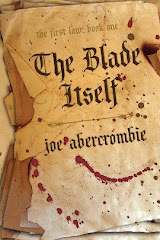.jpg)




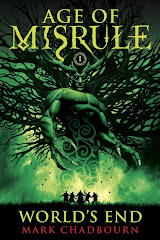.jpg)










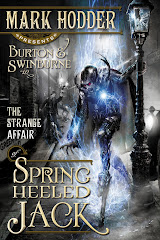


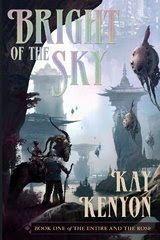.jpeg)
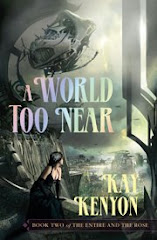.jpg)











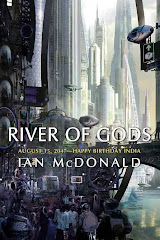.jpg)














.jpg)



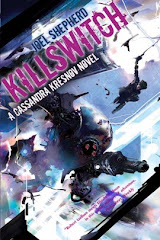.jpg)




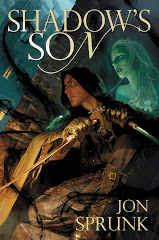









15 comments:
very nice :)
When Morlock talks to Handen, there is an obvious misspelling in the second sentence of “I didn’t know you from your brother in the dark. I suppose he is in he smithy by now.” The second "he" should be "the."
Aw, this was a really nice post. In idea I would like to put in writing like this additionally – taking time and actual effort to make a very good article… but what can I say… I procrastinate alot and by no means seem to get something done. Netbg.net Ohiorespite.com BBThousing.com
It is one of the information I have long been looking for, I am very happy because now I have to find it on your article, Thank you very much, yes, because you have been willing to write about it and share it with us all, Surely many people who helped with the information you submit this, Maybe I'll come back again to visit the site to find the latest information of other new possible you post right, So I hope you always update the latest information is always more interesting to be read by many people
Toko QnC Jelly Gamat Obat Infeksi Saluran Kemih Obat Thalasemia Klik Blog Herbal Cara Menyembuhkan Radang Lambung Obat Benjolan Di Kepala Cara Mengatasi Sariawan Pada Vagina QnC Jelly Gamat Asli Penyebab Benjolan Di Leher Obat Cacar Air
Jantung bocor ialah kondisi dimana lubang pada sekar jantung akibat kelainan struktur jantung, karena sekatnya bocor maka terjadi percampuran antara darah kotor dan darah besih. Inilah yang membuat jantung tidak berfungsi secara normal.
cara mengobati jantung bocor
Walatra Sehat Mata Softgel
Harga Walatra Sehat Mata Softgel
Jelly Gamat Walatra
Walatra G-Sea Jelly
Manfaat Walatra Berry Jus
tanda-tanda Akan Segera Melahirkan
Ini Tumbuh-Kembang Anak Usia 4 Tahun yang Harus Orangtua
Par Bratajaya dans Accueil le 27 Juillet 201
Posisi seks dan cara berhubungan intim agar tidak hamil
Tips Hubungan Intim Suami Istri Agar Cepat Hamil Dijamin Tokcer
8 Cara Unik Agar Istri Cepat Hamil, Nomor 3 Terdengar Tak Masuk-Masuk
Menhub Cari Solusi agar Semua Pemudik Kapal Dapat Tempat Tidur
This article is very useful, thank you for sharing. And allow me to share articles too, it's about health and treatment. God willing it will be useful for us all. Thank you
obat penghilang benjolan di ketiak kiri dan kanan tradisional
The article is good, thank you for sharing information
Obat Sakit Tenggorokan
Obat Kelenjar Getah Bening Di Leher
Cara Cepat Menyembuhkan Patah Tulang
6 Cara Mencegah Dan Mengatasi Pengeroposan Tulang
Cara Mengatasi Nyeri Tulang Dan Sendi Paling Ampuh
Cara Memperbaiki Kondisi Mata Kabur Atau Buram
Cara Mengobati Luka Bernanah Pada Penderita Diabetes
Bahaya Benjolan Di Leher Dan Cara Menghilangkannya
Cara Alami Menghilangkan Rasa Perih Pada Lambung
Manfaat Qnc Jelly Gamat Untuk Kesehatan Tubuh
Given article is very helpful and very useful for me, thank you
Cara Menghilangkan Nyeri Dan Pegal Di Lutut Cara Mengatasi Emfisema Obat Hipertiroid Cara Mengatasi Tinnitus Obat Amandel Paling Ampuh
Subhanallah..simple analogy but deep meaning. something we know but we never realized, opened my mind and heart. Obat Bruntusan Alami Cara Melancarkan Haid Obat Pilek Cara Mengatasi Gejala Tipes
This article is very useful, thank you for sharing. And allow me to share articles too, it's about health and treatment. God willing it will be useful for us all. Thank you :)
obat jantung bocor
cara mengobati sakit kepala yang tak kunjung sembuh
cara menyembuhkan asma secara total
obat kaki bengkak tradisional
cara mengobati tipes dengan cepat
cara mengobati infeksi lambung secara alami
cara mengobati kanker payudara secara alami
I discovered your blog site on google and check a few of your early posts. Continue to keep up the very good operate. I just additional up your RSS feed to my MSN News Reader. Seeking forward to reading more from you later on!…
Click Here
Community.virginmobileusa.com
Website
The next time I read a blog, I hope that it doesnt disappoint me as much as this one. I mean, I know it was my choice to read, but I actually thought you have something interesting to say. All I hear is a bunch of whining about something that you could fix if you werent too busy looking for attention.
Investworld.kazeo.com
Investsay.blogspot.com
Youre so cool! I dont suppose Ive read anything like this before. So nice to find somebody with some original thoughts on this subject. realy thank you for starting this up. this website is something that is needed on the web, someone with a little originality. useful job for bringing something new to the internet!
Foorumi.turunsrk.fi
Information
Proses baiknya punya tabungan pada suatu agen Bet casino otomatis jugalah tercantum mudah. Anda sebatas berharga menemukan bandar yang ideal hendaknya anda lantas mendaftarkan kenyataan diri kamu seperti pada umumnya. https://pokerasia77.info/ Semua kemenangan bersama kekalahan tersebut hendak dalam hitungan mulai credit tabungan bersama boleh pada tarik serta mengakses menu masakan withdraw di akun.
Post a Comment